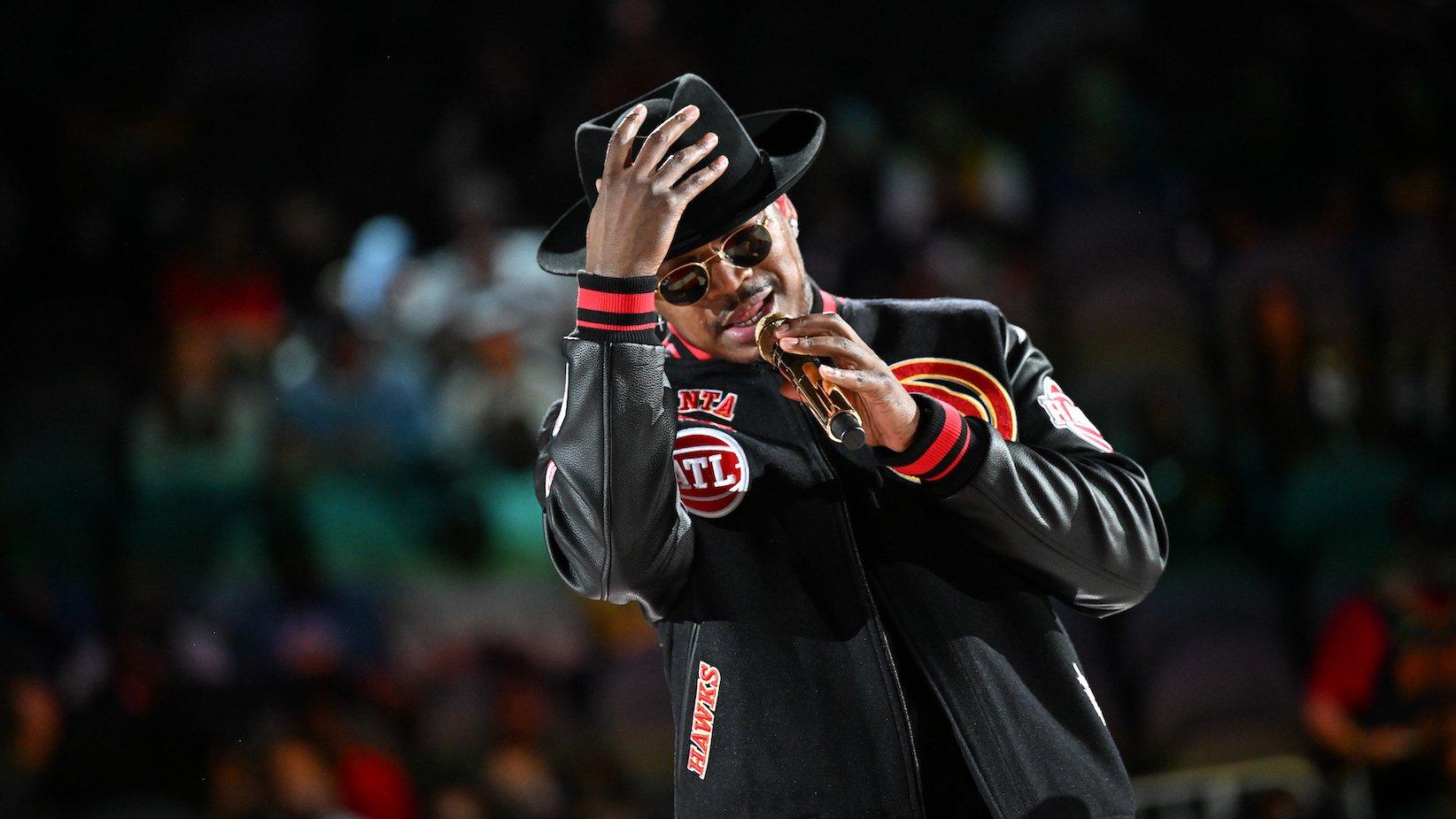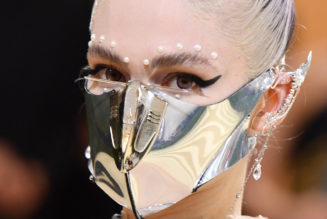
At the 2024 GRAMMYs on Feb. 4, history will be made for an entire continent.
African musicians will finally have a competition to call their own, with the inaugural Best African Music Performance category. GRAMMY winner Burna Boy will go head-to-head with fellow Afrobeats superstars Asake and Davido, as well as rising pop singers Ayra Star of Nigeria and Tyla of South Africa.
But the 66th GRAMMY Awards is far from the first time Africans have been honored during Music’s Biggest Night. African musicians have been taking home golden gramophones since the 1960s, when South African Miriam Makeba won Best Folk Album for her duo with Harry Belafonte. Since then, desert blues bands from the Sahara, extraordinary singers from Senegal and Cape Verde, pop divas from Nigeria and Benin, and a superstar DJ from South Africa have earned trophies in various categories.
Read on for a history of notable GRAMMY winners from Africa, whose works run the gamut of styles, traditions and categories.
Miriam Makeba (South Africa)
Best Folk Recording (with Harry Belafonte) – 1966
Before singer Mariam Makeba won a GRAMMY for An Evening with Belafonte/Makeba, a collaborative record with her mentor Harry Belafonte, an African artist had never won a thing at the GRAMMYs. That the singer had done this while fighting the apartheid regime of South Africa in exile — and amid the civil rights movement in the United States — makes it all the more revolutionary.
Born in the segregated township of Prospect near Johannesburg in 1932 to a Xhosa father and a Swazi mother, Makeba sang in choirs as a child and gravitated towards a musical career. A part in the anti-apartheid film Come Back, Africa rocketed her to fame in the U.S. and UK, and she traveled to New York and London, performing Xhosa-language folk songs like “Pata Pata” and “Qongqothwane.” In London she met Belafonte, who helped her career get started in the United States.
In 1960, Makeba’s anti-Apartheid activities caught up with her when she was banned from reentering South Africa, forcing her into exile in America. She balanced her musical career with activism, speaking out against Apartheid and integrating protest into records such as Belafonte/Makeba. The album featured the two singing folk songs from across Africa in languages such as Swahili and Zulu, several with explicitly anti-Apartheid themes.
Though Makeba fell out of favor with white American audiences in the late ‘60s due to close ties with the Black Power movement — she married Black Panther associate Stokely Carmichael (later Kwame Ture) in 1968, leading to a de facto media boycott and surveillance by the CIA and FBI — she continued to perform internationally and protest the South African regime. As Apartheid finally fell in 1990, a newly-freed Nelson Mandela arranged for her homecoming.
Sade (Nigeria/UK)
Best New Artist – 1986
Born in Ibadan, Nigeria to a Yoruba-ancestry father and an English mother, Helen Folasade Adu had studied fashion in London before becoming the vocalist and face of the band that bears her name, Sade. The jazzy, soulful sophisti-pop on their 1985 record Promise earned instant acclaim, reaching No. 1 on the Billboard 200. Multiple GRAMMYs followed, starting with a Best New Artist award in 1986.
The group earned eight additional nominations throughout their career and won another three, including Best R&B Performance by a Duo or Group with Vocal for “No Ordinary Love” and Best Pop Vocal Album for Lovers Rock. But their influence — especially that of the famously reclusive singer Adu — resonates beyond awards. Beyoncé, FKA twigs, Frank Ocean, Drake and many others have been influenced by or paid tribute to this iconic force in music.
Ali Farka Touré (Mali)
Best World Music Album – 1994
Raised in the town of Niafunké on the edge of the Sahara not far from Timbuktu, Ali Ibrahim Touré was always a bit stubborn, hence his nickname “Farka” (Donkey). It was this headstrong nature that led him to music — his parents frowned upon his musical ambitions, but he defied them, building his own musical instruments.
If Ali Farka Touré had listened to his parents, he may never have become the godfather of desert blues, the guitar-driven genre that has taken over North Africa. After traveling throughout his home country of Mali, absorbing the different cultures within, Touré went abroad and heard American blues music for the first time, specifically John Lee Hooker, noticing the similarities between his African tunes and the music made by those whose ancestors had been taken from the continent. He began to hit upon a style that fuses his African influences with those from across the Atlantic.
Touré once surmised “My music is older than the blues,” and became a crucial influence on generations of desert blues musicians to come, including Tinariwen, Mdou Moctar, and his own son and fellow musician Vieux Farka Touré. His pioneering sound would bring him two GRAMMYs for Best World Music Album in his lifetime, the first in 1994 for the collaborative record Talking Timbuktu with Ry Cooder, and the second in 2005 for In the Heart of the Moon. In 2010, he was posthumously awarded a golden gramophone for Best Traditional World Music Album, for Ali and Toumani.
Before his death in 2006, he became mayor of Niafunké and used the money he earned from his music to build roads, sewers, and a generator for the town.
Cesária Évora (Cape Verde)
Best Contemporary World Music Album – 2004
Hailing from the former Portuguese colony of Cape Verde off the western coast of Africa, Cesária Évora grew up in poverty and began singing as a child. Starting off as a club singer in the port city of Mindelo, she gained fame as the “Barefoot Diva,” performing without shoes in tribute to the poor. It was her voice, however, that made her an international star, representing her small island nation by singing in Portuguese-derived Cape Verdean Creole and popularizing the melancholic, fado and blues-derived genre of morna.
Évora had already spent years performing around the world — despite considerable discomfort with stardom — by the time her album Voz d’Amor won Best Contemporary World Music Album at the 2004 GRAMMYs. Évora continued to live in Cape Verde even after becoming famous until her death in 2011 at age 70.
Youssou N’Dour (Senegal)
Best Contemporary World Music Album – 2005
Youssou N’Dour, a legendary vocalist from Senegal, had been made famous in the West for his work on Peter Gabriel’s “In Your Eyes” and the Neneh Cherry collab “7 Seconds.” He had also worked on Paul Simon’s Album Of The Year-winning Graceland alongside South Africans Ladysmith Black Mambazo (which won two GRAMMYs before N’Dour even received his first).
But in 2005, he made history as Senegal’s first GRAMMY winner. N’Dour had been nominated three times for Best World Album and once for Best Contemporary World Music Album, finally winning the latter category that year for his album Egypt. (The Sufi-inspired record also earned Egyptian producer Fathy Salama his country’s first GRAMMY).
The GRAMMY Award was simply the capstone on a long, illustrious career. Born into a griot family in Dakar, telling stories through music was in N’Dour’s blood. In the late 1970s he gained massive acclaim locally as lead vocalist for the band Etoile de Dakar, which pioneered the mbalax genre by blending Afro-Latin dance music with traditional local rhythms. His soaring voice wouldn’t stay confined to his homeland for long as his work with Gabriel in 1986 lifted him to international stardom. Unlike many Francophone-African stars, he stayed in Senegal after breaking through and lives there to this day.
Angélique Kidjo (Benin/France)
Best Contemporary World Music Album – 2008
Originating from French-speaking Benin and now living in France, Angélique Kidjo
is the most GRAMMY-winning African musician in history. Her five trophies — starting in 2008 with a Best Contemporary World Music Album for Djin Djin — include three Best World Music Album wins and, most recently, a Best Global Music Album award for Mother Nature, which featured collaborations with Burna Boy, Mr. Eazi, and other new-gen African pop acts.
But more than being a GRAMMYs juggernaut, Kidjo is a grand dame of African music and a matriarchal figure for African musicians. After fleeing Benin for Paris in 1983, she signed with Island Records and rose to international acclaim in the early ‘90s thanks to dance-pop hits such as “Batonga” and “Agolo.” Her album Fifa from 1996 saw her return to Benin, working with percussionists throughout the country.
Her many records since have seen her broaden her musical horizons, exploring African American music in a trilogy of LPs, giving a full-album tribute to salsa icon Celia Cruz, and even reinterpreting Talking Heads’ African-influenced record Remain in Light. Fluent in five languages — including French, English, Yoruba and Fon — Kidjo communicates across the musical world, working with everyone from Carlos Santana and Ziggy Marley, to Tony Allen, Gilberto Gil, and members of Vampire Weekend.
RedOne (Morocco)
Best Dance/Electronic Album – 2010
Born in the mountainous city of Tétouan in northern Morocco, Nadir Khayat moved to Sweden to pursue a career in pop music at age 19, lured by the likes of ABBA and Europe. Taking the production alias RedOne, he experienced limited success with artists like the A*Teens, but it wasn’t until he decamped to Jersey City in 2007 that he met the artist who would define his career and win him his GRAMMYs: a little-known pop singer calling herself Lady Gaga.
Khayat ended up producing six tracks on Gaga’s debut record The Fame, including her breakthrough hit “Just Dance” — that’s his name you hear her shout at the beginning of the song, by the way. The bombastic, maximalist sound of “Just Dance,” “Poker Face,” “LoveGame,” and Fame Monster tracks like “Bad Romance” and “Alejandro” would conquer the charts, and the GRAMMYs.
At the 2010 GRAMMYs, The Fame won Best Dance/Electronic Album and “Poker Face” won Best Dance Recording; the next year, The Fame Monster earned Best Pop Vocal Album. Both LPs received Album Of The Year nods and “Poker Face” was nominated for Record and Song Of The Year. RedOne also earned a Moroccan Royal Award from King Mohamed VI in 2011; Though he hasn’t gotten a GRAMMY nod since 2012, few producers have had a run like he did.
Tinariwen (Mali/Algeria/Libya)
Best World Music Album – 2012
Just a year after Ali Farka Touré earned his final, posthumous GRAMMY, the desert blues band Tinariwen earned their first: Best World Music Album for their LP Tassili. The path they took to get there, however, was far more complicated than Farka’s, involving rebellion, war, and displacement.
Tinariwen’s members hail from the nomadic Tuareg people of the Sahara, whose frequent battles for independence have continued since the 1960s. Since forming in the 1980s the band’s music-making activities have been interrupted by rebellions against various North African governments, with some of the members even joining the fight. Featuring lyrics about the Tuareg people and their struggle for self-determination, Tinariwen’s songs were traded on cassettes across North Africa.
In the 2000s, they began to release music in the West, first via 2001’s The Radio Tisdas Sessions and have since earned acclaim from the global music community. Along with their 2012 win for Tassili, two more of their albums have been nominated: Elwan in 2017 and Amadjar in 2020. They’ve also worked with international musicians such as Mark Lanegan and Daniel Lanois.
That international acclaim has unfortunately come amid further danger at home. The group were exiled from Mali during the early 2010s Tuareg anti-government rebellion, with particular threats coming from Islamist militants Ansar Dine. Conflict is sadly still a part of life for many desert blues artists; in 2023 the Niger-based Mdou Moctar and his band were unable to return from a U.S. tour due to a military coup d’état in their home country.
Burna Boy (Nigeria)
Best Global Music Album – 2021
Femi Kuti, King Sunny Adé, Babatunde Olatunji, and his rival WizKid had all received GRAMMY nods before Burna Boy became the first Nigerian male artist to grab a golden gramophone for an original work. The Afrobeats megastar earned the prize for Best World Music Album in 2021 for his album Twice as Tall.
At the 66th GRAMMY Awards, Burna Boy has gathered four nominations — a career record. His “City Boys” is nominated in the first-ever Best African Music Performance category. His record I Told Them… earned a slot in Best Global Music Album, and two other songs from the album also got nominations: Best Global Music Performance for “Alone” and Best Melodic Rap Performance for the 21 Savage collab “Sittin’ On Top of the World.”
Black Coffee (South Africa)
Best Dance/Electronic Album – 2022
Before Black Coffee’s album Subconsiously won Best Dance/Electronic Album at the the 2022 GRAMMYs — the first African to win the category for an original project — most of South Africa’s winners were vocal performers like Ladysmith Black Mambazo and the Soweto Gospel Choir. The DJ/producer’s victory represents a shift around ideas of what African musicians are capable of, from traditional genres and folk music to the high-tech world of electronic dance music.
That success hasn’t necessarily come easy for the musician, born Nkosinathi Innocent Maphumulo in KwaZulu Natal province. In 1990 while celebrating Nelson Mandela’s release from prison, Maphumulo lost the use of his left arm in a car accident. Disability didn’t deter him from pursuing a music career, and by the mid-2000s he had become celebrated in his home country for helping develop Afro house, blending the international house music sound with influences from kwaito, mbaqanga, and other South African genres and sounds.
Today, Black Coffee is one of the most sought-after house DJs in the world, but back home in SA and across Africa, it’s the sultry sound of Amapiano, an Afro-House offshoot, that reverberates in clubs and at festivals today. A new generation of talent have embraced the smooth genre, from pop princess Tyla and producer/DJ Musa Keys to Nigerian Afrobeats stars like Davido and Asake, all of whom have nods at this year’s GRAMMYs.
Here Are The Nominees For Best African Music Performance At The 2024 GRAMMYs









